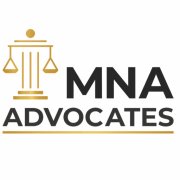Best Government Relations & Lobbying Lawyers in Uganda
Share your needs with us, get contacted by law firms.
Free. Takes 2 min.
Or refine your search by selecting a city:
List of the best lawyers in Uganda
About Government Relations & Lobbying Law in Uganda
Government relations and lobbying in Uganda involve engaging with key figures within governmental bodies to influence public policy, legislation, and decision-making processes. In Uganda, lobbying is a critical practice for organizations and individuals seeking to align their interests with governmental policies. The legal framework governing lobbying and government relations is pivotal for maintaining transparency, ethical practices, and accountability in interactions between the private sector, non-governmental entities, and government officials. While the sector continues to evolve, engaging experienced legal practitioners can help navigate the intricate landscape effectively.
Why You May Need a Lawyer
There are several common situations where legal assistance may be necessary in the field of government relations and lobbying in Uganda:
- Compliance with Regulatory Frameworks: Ensuring adherence to laws that govern lobbying activities.
- Drafting and Negotiating Agreements: Legal guidance in drafting contracts and negotiations with government entities.
- Influencing Legislation: Engaging legal experts to strategically influence policy development and legislative processes.
- Handling Legal Disputes: Representation in disputes arising from lobbying activities.
- Strategic Planning: Developing comprehensive legal strategies for effective government engagement.
Local Laws Overview
Uganda has established a legal framework that governs lobbying activities and government relations, emphasizing transparency and accountability. Key aspects include:
- Registration Requirements: Lobbyists and organizations may need to register with pertinent government bodies.
- Ethical Conduct: There are codes of conduct that need to be followed to ensure ethical interactions with government officials.
- Disclosure Obligations: Mandatory disclosures of lobbying activities and finances may be required.
- Anti-Corruption Measures: Stringent laws are in place to prevent corruption and promote fairness in government relations.
- Public Access to Information: Laws that guarantee citizen access to government information, supporting transparency.
Frequently Asked Questions
1. What is the legal definition of lobbying in Uganda?
Lobbying in Uganda is defined as any attempt by individuals or organizations to influence public policies and decisions made by government officials or entities.
2. Are there specific registration requirements for lobbyists?
Yes, lobbyists may be required to register with relevant government bodies to ensure transparency and adherence to legal standards.
3. Can foreign entities engage in lobbying activities in Uganda?
Foreign entities can participate in lobbying but must adhere to local laws and may require specific legal guidance to operate effectively.
4. How do anti-corruption laws affect lobbying practices?
Anti-corruption laws impose strict penalties on unethical practices, and lobbyists must ensure compliance to avoid legal repercussions.
5. What kind of information must be disclosed in lobbying activities?
Disclosures typically include financial expenditures, the scope of lobbying efforts, and the parties involved to uphold transparency.
6. Are there penalties for non-compliance with lobbying laws?
Non-compliance can result in significant legal penalties, including fines and disbarment from lobbying activities.
7. How can a lawyer assist in drafting lobbying agreements?
Lawyers provide expertise in drafting agreements that meet legal standards and protect the interests of their clients in lobbying engagements.
8. What resources are available for understanding lobbying laws?
Government publications, legal journals, and consultations with industry experts can provide valuable insights into lobbying laws.
9. How is public access to information relevant to lobbying?
Public access laws enhance transparency by allowing citizens to review government interactions and policymaking processes.
10. Why is ethical conduct important in government relations?
Ethical conduct ensures trust, credibility, and lasting relationships between lobbyists, government officials, and the public.
Additional Resources
For those seeking more information and assistance, consider the following resources:
- Uganda Law Society: Provides legal support and resources for understanding the legal landscape.
- Ministry of Ethics and Integrity: Offers guidance on ethical practices within lobbying.
- Anti-Corruption Coalition Uganda (ACCU): Works towards promoting transparency and accountability in government relations.
- Office of the Auditor General: Ensures financial and operational transparency of lobbying activities.
Next Steps
If you require legal assistance in government relations and lobbying in Uganda, consider the following steps:
- Assess your specific needs related to government relations or lobbying activities.
- Research and contact reputable legal practitioners or law firms with expertise in this area.
- Prepare necessary documentation and background information to present your case clearly.
- Set up consultations to discuss strategies, compliance, and representation with your chosen legal advisor.
- Maintain open communication with your lawyer to navigate the legal framework successfully.
Lawzana helps you find the best lawyers and law firms in Uganda through a curated and pre-screened list of qualified legal professionals. Our platform offers rankings and detailed profiles of attorneys and law firms, allowing you to compare based on practice areas, including Government Relations & Lobbying, experience, and client feedback.
Each profile includes a description of the firm's areas of practice, client reviews, team members and partners, year of establishment, spoken languages, office locations, contact information, social media presence, and any published articles or resources. Most firms on our platform speak English and are experienced in both local and international legal matters.
Get a quote from top-rated law firms in Uganda — quickly, securely, and without unnecessary hassle.
Disclaimer:
The information provided on this page is for general informational purposes only and does not constitute legal advice. While we strive to ensure the accuracy and relevance of the content, legal information may change over time, and interpretations of the law can vary. You should always consult with a qualified legal professional for advice specific to your situation.
We disclaim all liability for actions taken or not taken based on the content of this page. If you believe any information is incorrect or outdated, please contact us, and we will review and update it where appropriate.
Browse government relations & lobbying law firms by city in Uganda
Refine your search by selecting a city.

















